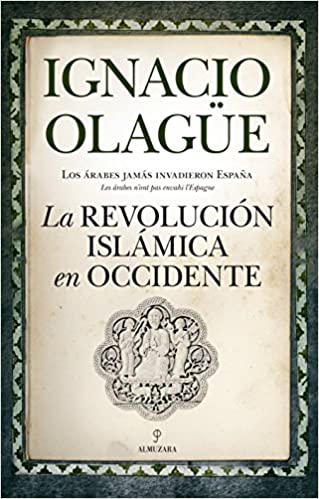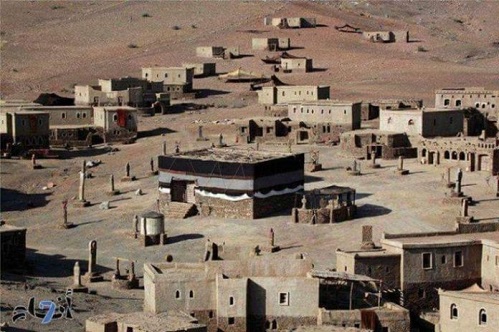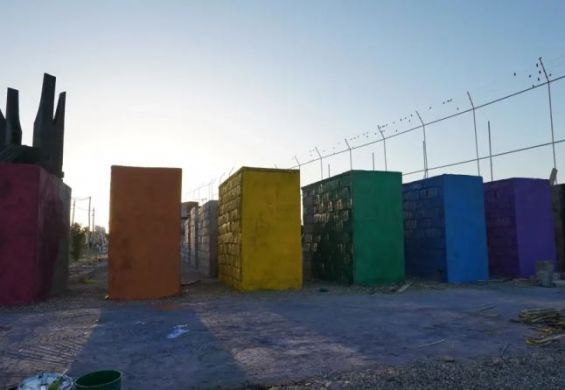“There was a Spain of a single culture with three religions,” says the Arabist
In his recently published book “Historia general de Al Ándalus”, published by Almuzara, Emilio González Ferrín denies that there was an Islamic invasion in 711. “There was no Islamic invasion in the Iberian Peninsula, and in 711, neither the Quran nor any Islamic tradition were codified,” says González Ferrín, who heads the Department of Integrated Philology at the University of Seville. “The Arabic language was 100 years short of being an international language, and anyone who entered the Iberian Peninsula was neither Muslim nor spoke Arabic,” the author summarizes. González Ferrín penned this book, more than 600 pages long, because “it was a matter of justice”. “So much rubbish persists around the conventional interpretation of the Arab language” says the author, who has been a visiting professor at the universities of Cairo, Amman and Damascus.
“The years 711 to 756 are of civil war. There was a division of the peninsula: The north leaned toward one side, Levante the other, Portugal another way yet. Spain suffered a famine and a generalized civil war that incorporated troops from North Africa that were not Arabs or Berbers, but Punic, Visigoths, Vandals and Byzantines,” says the author. “In this civil war, grosso modo, the contenders were the supporters of [the Visigoth kings] Witiza and Rodrigo. Witiza’s sons maintained control in the cities,” explains González Ferrín.
His book denies the Islamic invasion, and also the Reconquista. “Ortega of Gasset was already saying that a Reconquista spanning 800 years is too long to be called a Reconquista.” History does not advance in the blink of an eye: If there was no conquest, where is Al-Andalus? Al-Ándalus is a premier European renaissance, it is a genuinely European product. In the thirteenth century, the works of famed philosopher Averroes is banned at the Sorbonne, in Paris, not in Cairo, where it was not read. All we call Andalusian Jews wrote in Arabic,” González Ferrín adds.
“Al-Ándalus is filtered and this filtering produces essential elements for the Spanish Renaissance. Spanish Erasmism heralds from Al-Andalus, calling for less liturgical formality and more content,” he says.
“There is a contemporary reading. We have a complex: Being Spanish. This denial of Al-Ándalus is another component of this very complex,” says the Arabist. “Beginning in the year 1000, with the Book of the Apocalypse of Beato de Liébana and the discovery of the supposed remains of Santiago, an ideology of religion assumes its shape. The peninsula breaks in two, like shards of a mirror: the East assumes the pilgrimage to Mecca, and the West the pilgrimage to Santiago. Religion becomes an ideology,” says González Ferrín.
“The book follows Américo Castro in the sense that we have to achieve a complete understanding of our history: Al-Ándalus cannot be understood without first understanding Valencia, Zaragoza and Toledo.” “Al-Ándalus is a premier European renaissance, but as it is written in Arabic, Europeans do not they recognize it as such,” he adds.
González Ferrín praises the fruits of the debate between the historians Sánchez Albornoz and Américo Castro. “Juan Goytisolo said that we Spaniards are Europeans as we carry Al-Ándalus in our veins. The qualification I make to Américo Castro is that there was not a Spain of three cultures, but that there was a Spain of a single culture with three religions, and that Andalusian culture was the pinnacle of Europe “, says the author.
“Al-Andalus hails from the Greek Atlantis. Plato placed Atlantis here, just as Sepharad comes from the Garden of the Hesperides. Al-Andalus and Sepharad are the lost paradises of Greco-Roman culture, not of Bedouin or Arab myths. The Medieval times inherit Rome – it does not replace it, but inherits it”, concludes González Ferrín.





When in the year 850 the Catholic monk Alvaro of Cordova had in his book “Indiculus luminosus” committed the little lie of replacing the word Chaldeans by that of Arab in an apocalyptic prophecy of Daniel, he had never believed that he had just sown the embryo of an Arab people and that himself would be Arabized some centuries later. He who wrote the Arabic word as a sign of great contempt for the members of the Arian heresy who later became Islam
You should know that the so-called Arabic language is an Esperanto from the Middle Ages. To definitively separate the two Christian sects, Trinitarian and Unitarian, a new liturgical language is built on a North African dialect, and the calligraphy is demotic. The grammerian of this new language is not a Bedouin from the East, but a Kabyle, Ibn Muti who was an Arianist. The whole history of Islam stinks of the grip of the Vatican and North African traitors.